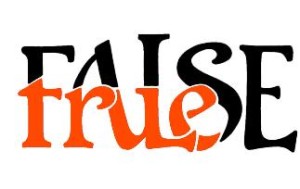This page contains general information. Contact a WBG attorney for specific advice.
There’s a lot of misinformation about bankruptcy floating around out there. Sometimes, it comes from the guy sitting on the barstool next to you. Other times, it comes from your cousin’s friend who filed a bankruptcy in 1988. Get the facts before you make any decisions about your financial future.
FICTION: Bankruptcy will allow you to get a free house or car by wiping out the debt!
Fact: Debt may be discharged in bankruptcy, but liens generally pass through unaffected. You can discharge your mortgage or vehicle debt, meaning that you can’t be sued if you stop making the payments. But the creditor will retain its lien and can repossess its collateral if you default.
FICTION: If you file bankruptcy, you will lose your home and all your other assets.
Fact: Very few Chapter 7 or Chapter 13 filers in Wisconsin lose anything. Exemptions allow you to keep a certain amount of “stuff,” and although the exemptions aren’t unlimited, they’re generous enough in Wisconsin to allow most every filer to keep what they have. Your bankruptcy attorney will tell you before filing if there’s a risk of losing anything and how to legally protect the maximum amount of your assets.
FICTION: Only deadbeats file bankruptcy.
Fact: Most bankruptcy filers are average people who suffered some kind of financial misfortune. See this post for more.
FICTION: You can pick which debts to declare in your bankruptcy.
Fact: At the beginning of a bankruptcy you must list all of your debts – even those you plan to pay – and all of your assets. Then you will sign that list under penalty of perjury and then your trustee will ask you, under oath, whether the list is complete. So, for example, there is no such thing as a “medical bankruptcy” covering only hospital and doctor bills. And, while we’re on the subject, there is no law that says paying a little bit each month to a doctor or hospital will protect you from being sued or garnished. On the other hand, there is no limit on the amount of medical bills you can discharge if you qualify for bankruptcy relief.
Note that the bankruptcy discharge stops creditors from collecting, but it doesn’t stop debtors from paying. So even if you do a bankruptcy you can still pay back that loan you listed from Uncle Bob, who helped you out when you needed it most.
FICTION: You can’t file bankruptcy after you’ve been sued (or after there is a judgment against you).
Fact: Lawsuits and judgments don’t stop you from filing a bankruptcy. And filing a bankruptcy stops all court cases, garnishments and other collection efforts. After the bankruptcy ends you can use a state law to satisfy judgments.
FICTION: Bankruptcy ruins your credit forever.
Fact: Most people who file bankruptcy already have a low credit score. Others are heading in that direction. Wiping out debt in bankruptcy begins the process of rebuilding credit. The day after your bankruptcy you can get a secured credit card. Over time, more lenders will allow you to borrow more money. After ten years the bankruptcy falls off your credit report altogether.
FICTION: You can't file bankruptcy on credit cards or medical bills.
Fact: These types of debts can be discharged in bankruptcy.
FICTION: You can only file after a waiting period.
Fact: There is no waiting period. In fact, with electronic filing, you could take your credit counseling course and file a bankruptcy the same day you meet with your attorney. However, a same-day rush filing often creates more problems than it solves. So you should contact a debt relief attorney sooner rather than later.
This page contains general information. Contact a WBG attorney for specific advice.
Wisconsin Bankruptcy Guide is provided by law firms designated as Debt Relief Agencies by the federal government because we help people file for relief under the Bankruptcy Code. We also provide other types of debt relief options.
Image credit: flickr/correabeto

